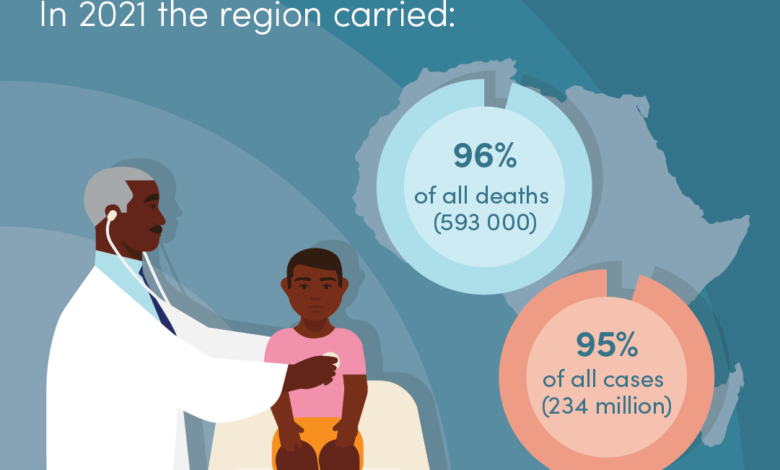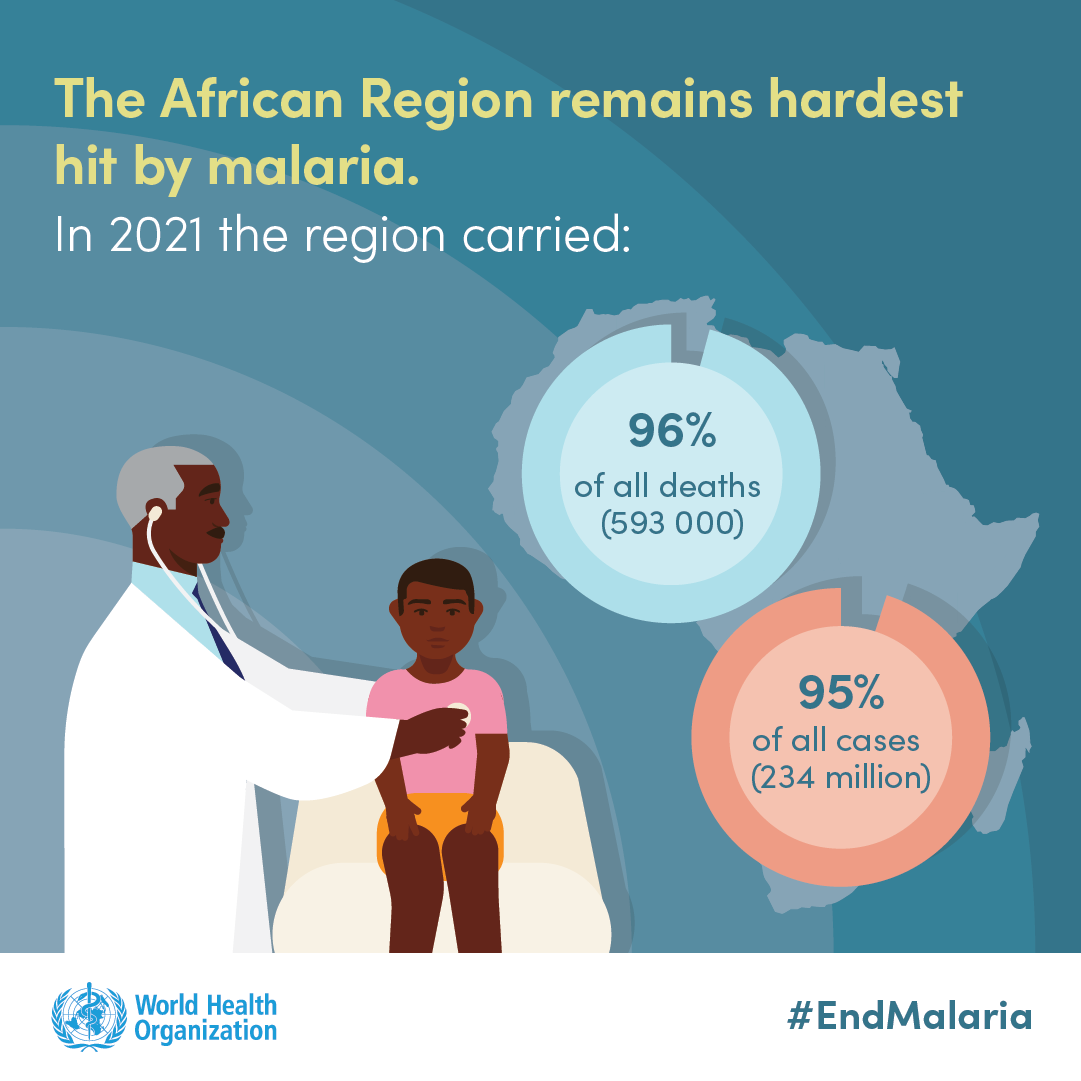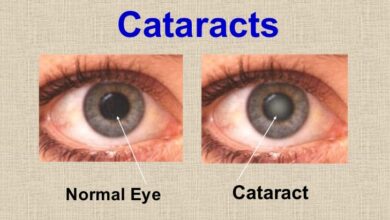

Malaria is a devastating disease that has had a profound effect on African communities for generations. As one of the leading causes of death in Africa. Malaria has caused immense suffering and poverty to many families and individuals. Despite the fact that malaria can be easily prevented and treated, millions of people in Africa still suffer from its effects every year. Today, we’d explore the effect and prevention of malaria in African communities and how efforts are being made to reduce its impact.
The History of Malaria in Africa
Malaria has been a serious health concern in Africa for centuries. In fact, it is believed that malaria was first documented in Africa more than 2,500 years ago. It wasn’t until the 19th century, however, that the cause of malaria was discovered to be an insect known as the mosquito. Since then, malaria has become one of the leading causes of death and disease in many African communities.
The symptoms of malaria can range from mild to severe, depending on the type of infection and the number of parasites present in the body. The most common symptoms include fever, chills, sweating, headaches, muscle aches, and fatigue. Severe cases can also cause confusion, seizures, and coma.
Malaria is spread through the bite of infected mosquitoes, which feed on human blood to reproduce. These mosquitoes are typically found near standing water sources, like rivers and ponds. They can also be found in damp and humid environments, such as rainforests and swamps.
The effects of malaria can be devastating for communities in Africa. Not only does it reduce the quality of life for those affected, but it also affects local economies as people are unable to work due to their illness. Malaria can also lead to long-term health issues such as anemia and kidney failure.
Fortunately, there are several ways to prevent malaria in African communities. The most effective method is to reduce the number of mosquitoes by eliminating or treating their breeding grounds. Insecticide-treated nets should also be used to prevent mosquito bites during sleep. Finally, individuals should take anti-malarial medication if they are travelling to an area where malaria is present.
How Malaria is Spread
Malaria is a disease that is primarily spread by the Anopheles mosquito. When an infected mosquito bites a person, it injects the malaria parasite (Plasmodium) into the person’s bloodstream. The parasite then travels to the liver, where it multiplies and matures before entering the bloodstream again and infecting red blood cells.
Malaria can also be transmitted through blood transfusions, organ transplants, and the sharing of needles or syringes contaminated with infected blood. Additionally, a mother infected with malaria can transmit the disease to her unborn child during pregnancy or delivery.
It’s important to note that malaria cannot be spread through casual contact, such as touching or kissing someone who has the disease.
The Symptoms of Malaria
Malaria is a serious and potentially life-threatening disease caused by a parasite transmitted by the bite of an infected mosquito. Symptoms of malaria can vary depending on the severity of the infection and the type of malaria parasite involved. Common symptoms of malaria include:
- High fever
- Chills
- Sweating
- Headache
- Muscle and joint pain
- Nausea and vomiting
- Fatigue
- Diarrhea
- Anemia
- Convulsions and seizures (in severe cases)
It’s important to note that some people with malaria may not show any symptoms, while others may experience symptoms that can mimic those of other illnesses. If you are traveling to or living in an area where malaria is common, it’s important to seek medical attention immediately if you experience any of these symptoms. Early diagnosis and treatment are essential to prevent serious complications and reduce the risk of death.
The Effects of Malaria
Malaria is a serious infectious disease caused by a parasite called Plasmodium, which is transmitted to humans through the bites of infected mosquitoes. The effects of malaria can be devastating and potentially life-threatening, particularly in young children, pregnant women, and people with weakened immune systems.
Here are some of the effects of malaria:
- Fever and flu-like symptoms: Malaria typically causes fever, chills, headache, muscle aches, and fatigue. These symptoms can be similar to those of the flu.
- Anemia: Malaria can cause anemia, a condition in which the body doesn’t have enough red blood cells to carry oxygen to the tissues. This can lead to weakness, fatigue, and shortness of breath.
-
Organ damage: Severe malaria can damage vital organs such as the liver, spleen, and kidneys. This can lead to complications such as jaundice, kidney failure, and respiratory distress.
-
Neurological effects: In some cases, malaria can affect the brain and nervous system, causing seizures, coma, and even death.
- Pregnancy complications: Pregnant women with malaria are at risk of premature delivery, low birth weight, and stillbirth.
- Impaired cognitive function: Malaria can cause long-term cognitive impairment in children, affecting their ability to learn and perform well in school.
-
Economic impact: Malaria can have a significant economic impact on communities and countries, as it can lead to decreased productivity and increased healthcare costs.
Prevention and treatment of malaria are crucial to reducing the effects of this disease. This includes measures such as using mosquito nets, taking antimalarial medications, and eliminating mosquito breeding sites.
How to Prevent Malaria
Malaria is a serious and sometimes fatal disease caused by a parasite transmitted through the bites of infected mosquitoes. Here are some ways to prevent malaria:
- Use insect repellent: Apply insect repellent containing DEET, picaridin, or oil of lemon eucalyptus on your skin and clothing to help prevent mosquito bites.
-
Wear protective clothing: Wear long-sleeved shirts, pants, and socks to cover as much skin as possible, especially during the evening and night when mosquitoes are most active.
-
Use mosquito nets: Sleep under a mosquito net that is treated with insecticide, especially if you are staying in an area where malaria is prevalent.
- Take antimalarial medication: If you are traveling to an area with a high risk of malaria. Reach out to your healthcare provider about taking antimalarial medication before, during, and after your trip.
- Eliminate mosquito breeding sites: Mosquitoes breed in stagnant water, so remove any standing water around your home, such as in flowerpots, buckets, or birdbaths.
- Stay indoors during peak mosquito hours: Mosquitoes that transmit malaria are most active during the evening and night. We should all try to stay indoors during these times.
-
Seek medical care immediately if you develop symptoms: If you develop symptoms of malaria such as fever, chills, headache, and muscle aches. Seek medical care immediately. Malaria can be treated effectively with early diagnosis and prompt treatment.
Conclusion
Malaria is a preventable disease that has had a devastating effect on African communities. Unfortunately, it continues to be a major public health issue in Africa. Mosquitoes are the primary cause of malaria, and prevention is key in eliminating this disease from African communities. There are several measures that can be taken to prevent malaria, such as using mosquito nets, insecticides, and environmental management. Additionally, people can take steps to protect themselves by wearing long-sleeved clothing and using insect repellent when outdoors. By taking these preventive measures, African communities can reduce the effect of mosquitoes and malaria and help save lives.





